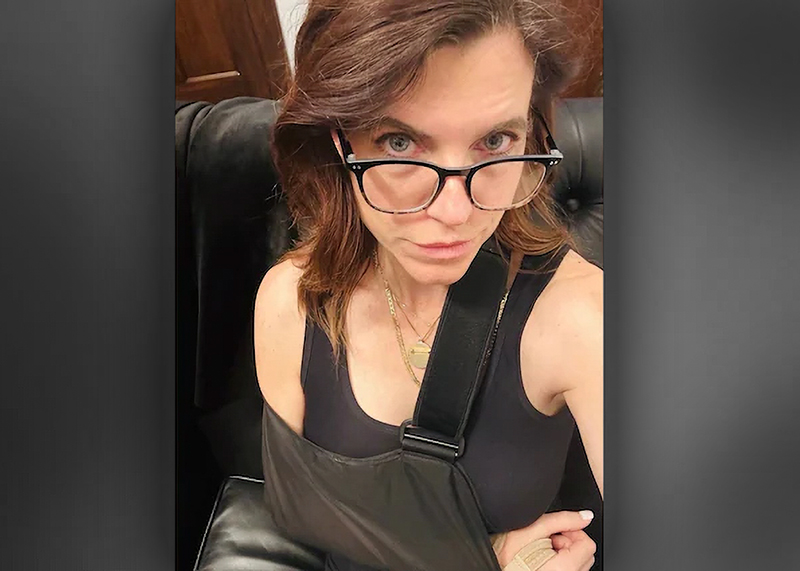Congressman’s bill would prohibit taxpayer dollars paying for conversion therapy
Rep. Sean Patrick Maloney's measure would crack down on fraudulent Medicaid billing practices

U.S. Rep. Sean Patrick Maloney (D-N.Y.) has introduced a bill in Congress that would prohibit Medicaid funds from being used to reimburse therapists who engage in conversion therapy.
Individual states currently decide which services Medicaid can cover, but most have failed to ban the use of funds for conversion therapy. In order to be reimbursed for their services, conversion therapists will often send medical bills to the Centers for Medicare & Medicaid Services (CMS) using CMS codes for mental or behavioral health.
As a result, taxpayer dollars have been allowed to flow to therapists who engage in practices that have largely been denounced by most mainstream medical associations and are not considered scientifically valid.
To combat this, Maloney’s Prohibition of Medicaid Funding for Conversion Therapy Act would crack down on misleading billing tactics, and would define “conversion therapy” to ensure that organizations providing legitimate mental health services and support to LGBTQ people are not at risk of losing funding.
Already, the bill, which was introduced last week, has gained 63 co-sponsors.
“Conversion practices are discredited, harmful, and not therapy,” Maloney said in a statement. “Fundamentally, conversion tactics are based on the idea that a person’s gender identity or sexual orientation are diseases to be cured — they have no legitimate medical application and should not be used anywhere.
“Until we can just ban conversion ‘therapy’ all together, we must ensure taxpayer dollars aren’t funding a fraudulent practice that has been roundly discredited by the medical community,” Maloney added.
The bill takes a similar approach as an executive order issued by New York Gov. Andrew Cuomo in 2016 to prohibit insurers operating in the state from reimbursing mental health practitioners who engage in the practice. Cuomo was forced to issued the executive order because, at the time, the Republicans in charge of the New York Senate refused to allow a vote on any LGBTQ-related bill.
After Democrats regained control of the chamber earlier this year, the Senate overwhelmingly passed a bill by a 57-4 margin to prohibit therapists from subjecting minors to the controversial therapy. The bill was then passed by the State Assembly on a 134-3 vote, and signed into law by Cuomo.
LGBTQ advocates are ecstatic about Maloney’s bill, having long argued that taxpayer dollars should not be used to fund therapies that seek to change a person’s sexual orientation or gender identity, but have no basis in medical science.
“Conversion therapy is a charlatan practice that has been widely debunked and discredited by healthcare professionals and banned by law in 15 states, Washington D.C., and scores of municipalities and counties,” Dr. Gal Mayer, the president of GLMA: Health Professional Advancing Equality, said in a statement. “As a healthcare provider, I know that these dangerous and unsuccessful attempts to alter a person’s sexuality or gender identity do not work and can result in mental health problems, substance use, and suicide.”
“The Trevor Project hears from youth harmed by the dangerous and discredited practice of conversion therapy every week,” Sam Brinton, the head of advocacy and government affairs for The Trevor Project, said in a statement. “By limiting the means by which licensed mental health professionals can be reimbursed for their horrific practice, the Prohibition of Medicaid Funding for Conversion Therapy Act will make clear that conversion therapy is far outside the mainstream.”
David Stacy, the government affairs director for the Human Rights Campaign, called on Congress to swiftly pass Maloney’s legislation.
“Being LGBTQ is not a mental illness and should never be treated that way,” Stacy said in a statement. “Taxpayer dollars should never be used to fund this dangerous and discredited practice.”
Shylar Baber, a federal policy consultant at the Family Equality Council, noted that the legislation would particularly be helpful for LGBTQ children in the foster care system, since Medicaid is the primary healthcare provider for foster children.
“Passage of this bill will mean that foster children, who often don’t have strong support from adults in their lives, will be able to trust that their medical providers will not subject them to this abusive procedure,” Baber said in a statement. “As a foster care alumni who was subjected to conversion therapy while in care, I can’t overstate the importance of medical providers ensuring that all medical treatment is in the best interest and supports the well-being of the child.”
Support Metro Weekly’s Journalism
These are challenging times for news organizations. And yet it’s crucial we stay active and provide vital resources and information to both our local readers and the world. So won’t you please take a moment and consider supporting Metro Weekly with a membership? For as little as $5 a month, you can help ensure Metro Weekly magazine and MetroWeekly.com remain free, viable resources as we provide the best, most diverse, culturally-resonant LGBTQ coverage in both the D.C. region and around the world. Memberships come with exclusive perks and discounts, your own personal digital delivery of each week’s magazine (and an archive), access to our Member's Lounge when it launches this fall, and exclusive members-only items like Metro Weekly Membership Mugs and Tote Bags! Check out all our membership levels here and please join us today!























You must be logged in to post a comment.